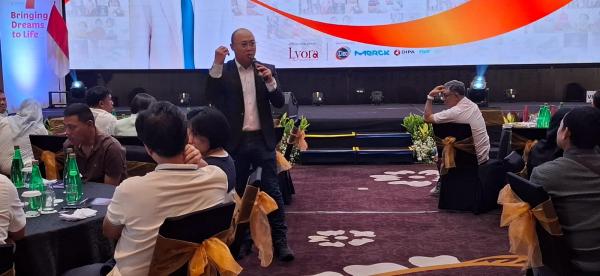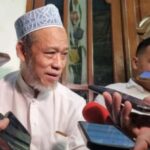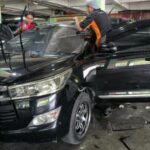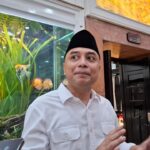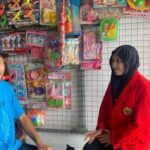SURABAYA – Hope for couples struggling with fertility is now wider than ever. Celebrating 27 years of service, Morula IVF Surabaya has introduced a groundbreaking lifetime free Preimplantation Genetic Testing for Aneuploidy (PGTA) program, a remarkable innovation in Indonesia’s IVF landscape. By offering PGTA services at no cost, Morula aims to help couples achieve healthy pregnancies free from genetic disorders.
This revolutionary step was announced directly at Morula Surabaya’s clinic, demonstrating their commitment to improving pregnancy outcomes through modern fertility technology.
PGTA plays a crucial role in minimizing the risk of early miscarriage. The test scans embryos before implantation to ensure no chromosomal abnormalities, such as Down Syndrome or other genetic conditions, are present.
“In fact, 70-80% of miscarriages occurring before 10 weeks of pregnancy are due to genetic abnormalities, not physical activities like climbing stairs or certain foods,” explained a specialist.
With PGTA, the healthiest embryos can be selected from the start, significantly increasing the success rate of IVF treatments.
The most notable aspect is the “Lifetime PGTA” program, where couples undergoing IVF at Morula Surabaya can receive free PGTA services until a successful pregnancy is achieved.
A representative from Morula management emphasized that this initiative is not just a promotional offer but an act of empathy and solidarity for couples striving to conceive.
“As age increases, the chances of pregnancy decline. That’s why we introduced PGTA—to make the pregnancy process faster and healthier. Since the cost is typically high, we’re offering it for free to help more couples,” they stated.
Typically, PGTA costs around Rp15 million per embryo, and a single IVF cycle can produce 5–10 embryos. Under this program, Morula provides free testing for 1 to 2 embryos and continues support until pregnancy is confirmed.
PGTA is highly recommended for: Women over 35, Couples with a history of recurrent miscarriages, and Patients who have previously failed IVF cycles.
Experts confirm that PGTA increases success rates because the implanted embryos are chromosomally healthy.
“PGTA not only improves pregnancy chances but also reduces miscarriage risks. It’s a smart step for couples looking to maximize their IVF success,” said a specialist.
Beyond advanced technology and service accessibility, Morula IVF Surabaya has also earned ARTEC (Reproductive Technology Accreditation Committee) accreditation—an international quality standard recognized in Australia, Singapore, and New Zealand.
Currently, only two clinics in Indonesia hold this prestigious accreditation: Morula Jakarta and Morula Surabaya.
“We undergo annual audits, evaluating not just technology but also pregnancy success rates, patient care, and medical team integrity,” shared a specialist.
Morula Surabaya’s lifetime free PGTA program brings new hope to thousands of couples facing challenges in their journey to parenthood. Amid financial and age-related obstacles, Morula offers more than hope—they provide a science-based, empathetic solution.
With international accreditation, cutting-edge technology, and an experienced medical team, Morula IVF Surabaya solidifies its position as a pioneer in Indonesia’s IVF services.
Morula IVF Surabaya
Morula IVF Surabaya is a leading fertility clinic in Surabaya, Indonesia, specializing in in vitro fertilization (IVF) and reproductive health services. Established to address growing demand for advanced fertility treatments in East Java, it is part of the larger Morula IVF network, known for its modern technology and experienced specialists. The clinic provides personalized care to help couples and individuals achieve pregnancy through assisted reproductive techniques.
PGTA
“PGTA” does not correspond to a widely recognized place or cultural site. If you meant a specific location, acronym, or cultural reference (e.g., a festival, organization, or landmark), please provide additional details so I can offer an accurate summary. For example, if referring to *Pura Goa Gajah* (a Balinese temple), *Punta Gorda* (a town in Belize), or another site, clarifying the name would help. Let me know how you’d like to proceed!
ARTEC
ARTEC is a contemporary art and technology center, often recognized for its innovative exhibitions and interactive installations that merge art with digital media. While specific historical details may vary by location, such centers typically emerge in the late 20th or early 21st century as hubs for experimental creativity, fostering collaborations between artists, engineers, and designers. They aim to push the boundaries of traditional art forms through cutting-edge technology. (If referring to a specific ARTEC, additional context would help refine this summary.)
Reproductive Technology Accreditation Committee
The Reproductive Technology Accreditation Committee (RTAC) is an Australian body that sets and monitors standards for assisted reproductive technology (ART) clinics. Established to ensure high-quality care and ethical practices in fertility treatments, RTAC accredits clinics that meet rigorous clinical, laboratory, and ethical guidelines. Its history reflects the evolution of ART regulation in Australia, promoting safety and accountability in reproductive medicine.
Morula Jakarta
Morula Jakarta is a well-known entertainment and dining complex located in North Jakarta, Indonesia. It gained popularity in the 1990s as a vibrant nightlife destination, featuring restaurants, karaoke bars, and live music venues. While its prominence has faded over the years, it remains a nostalgic spot for those who experienced Jakarta’s lively social scene during its heyday.
Down Syndrome
Down syndrome is not a place or cultural site but a genetic condition caused by the presence of an extra chromosome 21. First identified in 1866 by British physician John Langdon Down, it leads to developmental and intellectual delays, as well as distinct physical features. Today, awareness and inclusion efforts promote the rights and opportunities of individuals with Down syndrome worldwide.
Indonesia
Indonesia is a diverse archipelago in Southeast Asia, comprising over 17,000 islands, with a rich cultural heritage shaped by Hindu, Buddhist, Islamic, and colonial influences. Historically home to ancient kingdoms like Srivijaya and Majapahit, it later became a Dutch colony before gaining independence in 1945. Today, it is known for its vibrant traditions, stunning landscapes like Bali and Borobudur, and the world’s largest Muslim population.
Surabaya
Surabaya, Indonesia’s second-largest city, is a major port and industrial hub on Java Island with a rich history dating back to the 10th century. It played a pivotal role in Indonesia’s struggle for independence, notably during the 1945 Battle of Surabaya against British and Dutch forces, now commemorated as Heroes’ Day. Today, the city blends modern development with historical landmarks like the Suramadu Bridge and the Heroes Monument.

